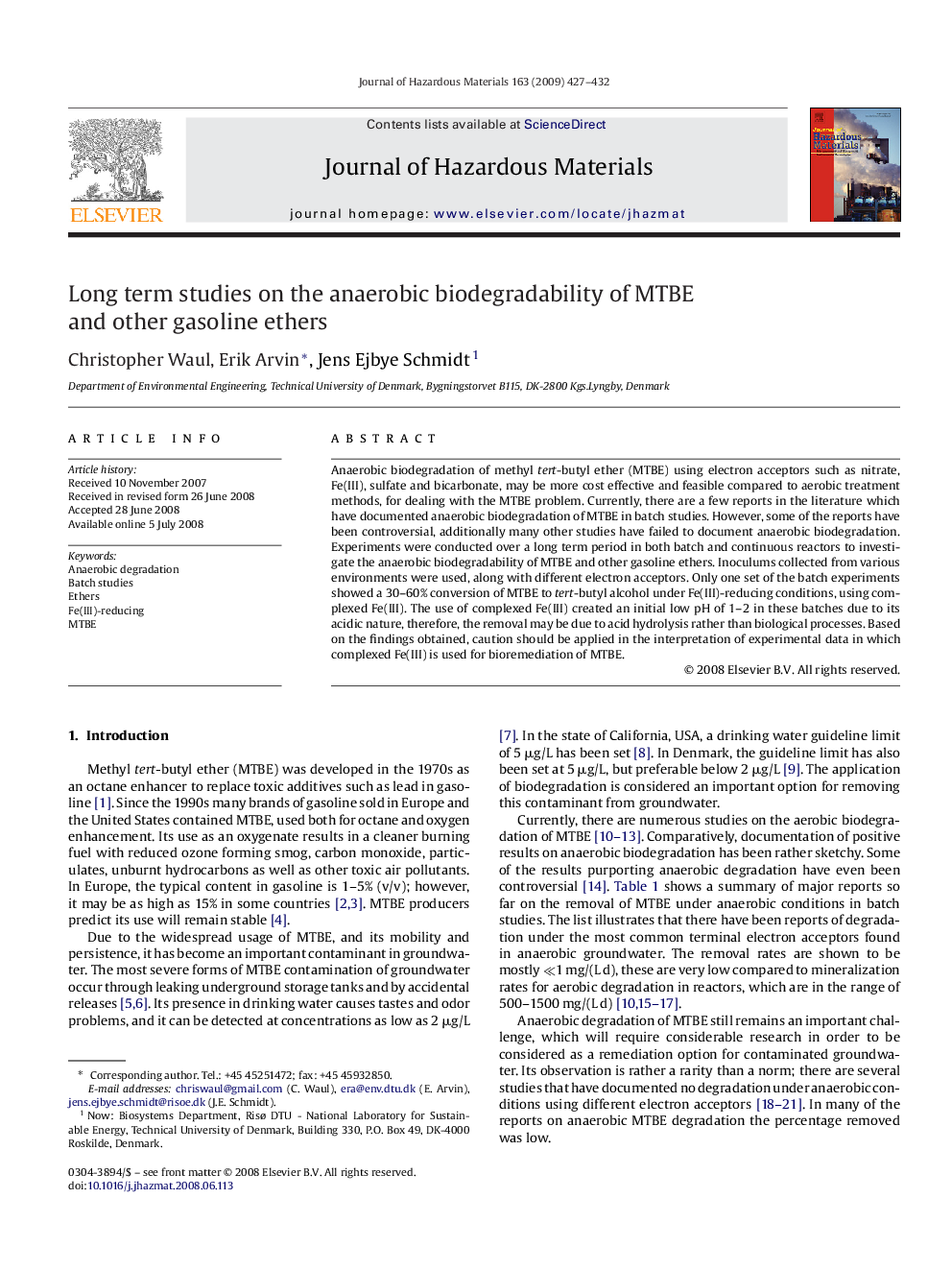| Article ID | Journal | Published Year | Pages | File Type |
|---|---|---|---|---|
| 581976 | Journal of Hazardous Materials | 2009 | 6 Pages |
Abstract
Anaerobic biodegradation of methyl tert-butyl ether (MTBE) using electron acceptors such as nitrate, Fe(III), sulfate and bicarbonate, may be more cost effective and feasible compared to aerobic treatment methods, for dealing with the MTBE problem. Currently, there are a few reports in the literature which have documented anaerobic biodegradation of MTBE in batch studies. However, some of the reports have been controversial, additionally many other studies have failed to document anaerobic biodegradation. Experiments were conducted over a long term period in both batch and continuous reactors to investigate the anaerobic biodegradability of MTBE and other gasoline ethers. Inoculums collected from various environments were used, along with different electron acceptors. Only one set of the batch experiments showed a 30-60% conversion of MTBE to tert-butyl alcohol under Fe(III)-reducing conditions, using complexed Fe(III). The use of complexed Fe(III) created an initial low pH of 1-2 in these batches due to its acidic nature, therefore, the removal may be due to acid hydrolysis rather than biological processes. Based on the findings obtained, caution should be applied in the interpretation of experimental data in which complexed Fe(III) is used for bioremediation of MTBE.
Related Topics
Physical Sciences and Engineering
Chemical Engineering
Chemical Health and Safety
Authors
Christopher Waul, Erik Arvin, Jens Ejbye Schmidt,
